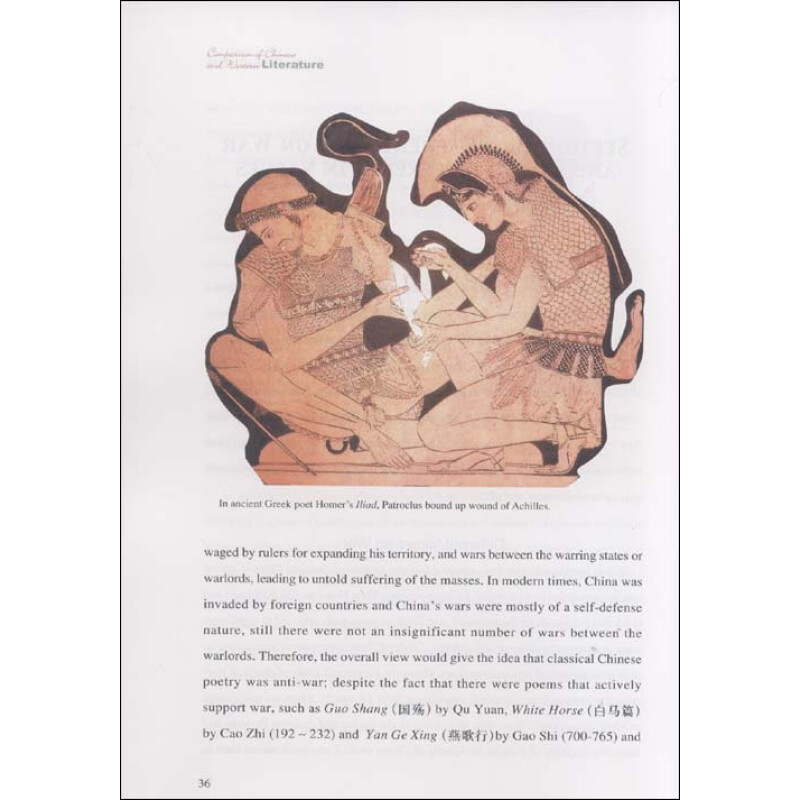Details
The purpose of writing this book is to help people better understand the cultural connotation of Chinese Literature and Chinese Literature behind through the comparison of traditional Chinese Literature and Western Literature.
About Author
Li Qingben originally from Laizhou, Shandong and born in 1965, PhD in literature. He is the Director of Research Institute of World Literature and Culture, Beijing Language and Culture University. He is professor and tutor of PhD candidates.
Sample Pages Preview

 Preface
Preface
Literature, in a strict sense, refers to "the art of beauty" or "the art of language", including poetry, prose, drama, fiction, etc. However, the concept of "literature" has gone through a complicated process of evolution in the course of history before it develops the meaning we usually refer to today.
In China, the word"文学"(literature) first appeared in The Analects of Confucius. The Analects of Confucius, Part-11 quotes the master as saying:
德行: 颜渊, 闵子骞, 冉伯牛, 仲弓.
言语: 宰我, 子贡.
政事: 冉有, 季路.
文学: 子游, 子夏.
The translation reads: the students of Confucius had various abilities. The ones virtuous in principles and conduct were Yan-Yuan, Min Ziqian, Ran Boniu and Zhonggong. The ones who were good in rhetoric were ZaiWo and Zigong. The ones who had administrative talents were Ranyou and Jilu. The ones familiar with the ancient literature were Ziyou and Zixia.Here."literature" refers generally to ancient classic literature, not including language and art works that have special aesthetic features involving the manifold factors of emotion, imagination and fabrication. The special aesthetic nature of literature at the time was the function of poetry. Confucius says, "The poetry serve to stimulate the mind."

